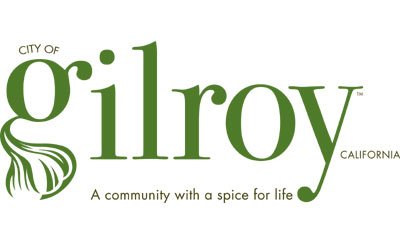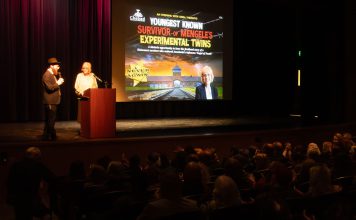After a year of rancor, heartfelt arguments and seemingly
endless review, the city council is set to pass Gilroy’s first open
government law.
After a year of rancor, heartfelt arguments and seemingly endless review, the city council is set to pass Gilroy’s first open government law.
The council approved Councilman Perry Woodward’s signature “sunshine ordinance” with a 6-1 vote last week, but a final vote will likely take place Nov. 17. If it passes, Gilroy will join other cities such as Milpitas and San Francisco that exceed the state’s open government laws by making it easier for members of the public to obtain information. In particular, the ordinance creates a commission to review stalled records requests, calls for city staff to maintain indexes of documents for easy access and requires the council to vote before holding a closed session.
Councilman Peter Arellano voted against the ordinance, calling for more review, but Woodward and others argued that four study sessions and a thorough analysis by the city attorney sufficed.
Before the vote, Mayor Al Pinheiro tried for a second time “to go above and beyond” by altering a section of the ordinance that permits three of seven council members from meeting on their own. In the name of transparency, Councilmen Dion Bracco and Peter Arellano agreed that only two persons should be allowed to meet, much to the chagrin of the other four council members, who have said they perceive Pinheiro’s efforts as attempts to stymie their collective – and legal – political clout.
“I’m disappointed you’re trying for a second bite at the apple,” Dillon told Pinheiro. “You just don’t like that your ox getting gored here … I have a First Amendment right to discuss anything with any constituents.”
But if transparency is actually the goal, Pinheiro said he did not understand Woodward “sitting in some coffee shop with Dillon and Gartman to talk about how you want the sidewalk or sunshine ordinances to be.”
“When the three of you come in as a bloc, that to me is not transparent,” Pinheiro added.
State law under the Brown Act already forbids a majority of council members from agreeing on official city business outside the public forum, but the sunshine ordinance forbids a quorum to meet at all, regardless if a consensus is reached.
Despite state law, Bracco said he stopped meeting with two council members simultaneously about three years ago, when he said his pastor witnessed him doing so and told him afterward what it looked like.
“It’s legal, but I don’t feel it’s right,” Bracco said. “This council should hold itself to the higher standard.”
Bracco also floated the idea of requiring council members to only accept contributions from identifiable parties, whereas campaign laws allow candidates to accept anonymous donations of $99 or less.
But the campaign conversation quickly returned to the ongoing polemic, which frustrated Councilwoman Cat Tucker. She scorned her colleagues for making accusations instead of deliberating.
“This has been a waste of 35 minutes. This is how business has always been done in politics,” Tucker said of council members meeting outside City Hall to talk shop. “Two people getting together is just as damaging as three. I’ll be more than willing to tell everyone on the dais that I met with two other people … I don’t see anything wrong with that – I’m sorry.”
The back and forth grew louder as Woodward accused Pinheiro of trying to commandeer the ability to call a special meeting, which the city charter allows the mayor or three council members to do and which Woodward, Gartman and Dillon did to initiate the first sunshine meeting in July.
“It is ludicrous to prevent three from meeting if the charter calls for three to hold a special meeting,” Woodward said. “I have a problem with you (Pinheiro) bringing this up for a political purpose.”
“Political purpose,” Pinheiro said to Woodward as Tucker exhaled loudly. “That’s a new one.”
The debate eventually cooled as council members discussed the less controversial aspects of the ordinance.
The ordinance would prevent the city from using so-called “deliberative process” and “public interest” privileges, which allow officials to deny requests under the Public Records Act if releasing the material sought would impair the city’s candid decision-making process or if the public’s interest in not seeing the material outweighs its interest in seeing it. Sensitive materials, such as some draft reports, police investigations and closed session negotiation information, would remain off limits.
Under the ordinance, city staff will also have two years to prepare an index of all information and documents maintained by their respective departments – a sort of go-to list for someone looking for that one document they just can’t put their finger on, Woodward said.
If an official rejects a document-seeker’s request within 10 days, the requesting party has the option of appealing to the city administrator and then the Open Government Commission, which would consist of three council members appointed by the council for terms of two years. The city’s regularly contracted law firm would advise the commission.
In July, the city council decided to strike the ordinance’s requirement that closed sessions be videotaped. Along with legal matters, salary negotiations with unions and property-related discussions can be held in closed sessions under the Brown Act and Woodward’s proposal.
To convene a closed session under Woodward’s ordinance will require a majority vote by the council once it convenes behind closed doors. If four or more agree that the topic should be discussed in public, the restricted meeting will end immediately. If the closed session takes place, the ordinance also requires a vote afterward to decide whether the body will reveal any information.
In regard to Councilman Dillon’s First Amendment concerns, City Attorney Linda Callon remarked that council members’ free speech rights were already impinged upon by closed session gag orders.
The ordinance also mandates that the salaries and benefits of council members and high-ranking city employees be discussed in open session – unlike those of union employees – and requires that draft memos and other initial documents be made available to the public if they are kept along with any final reports or letters, a departure from the city’s current practice.














